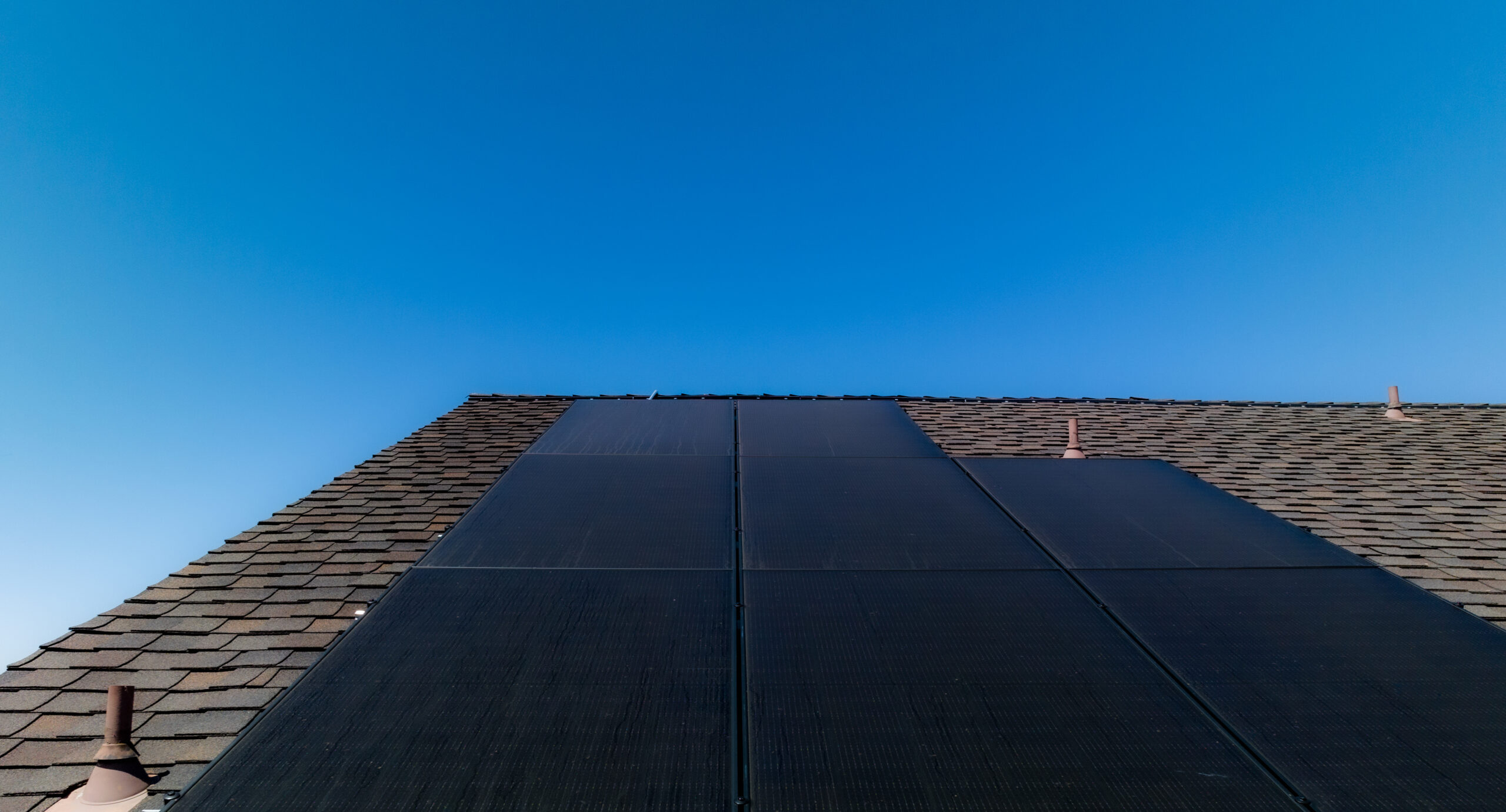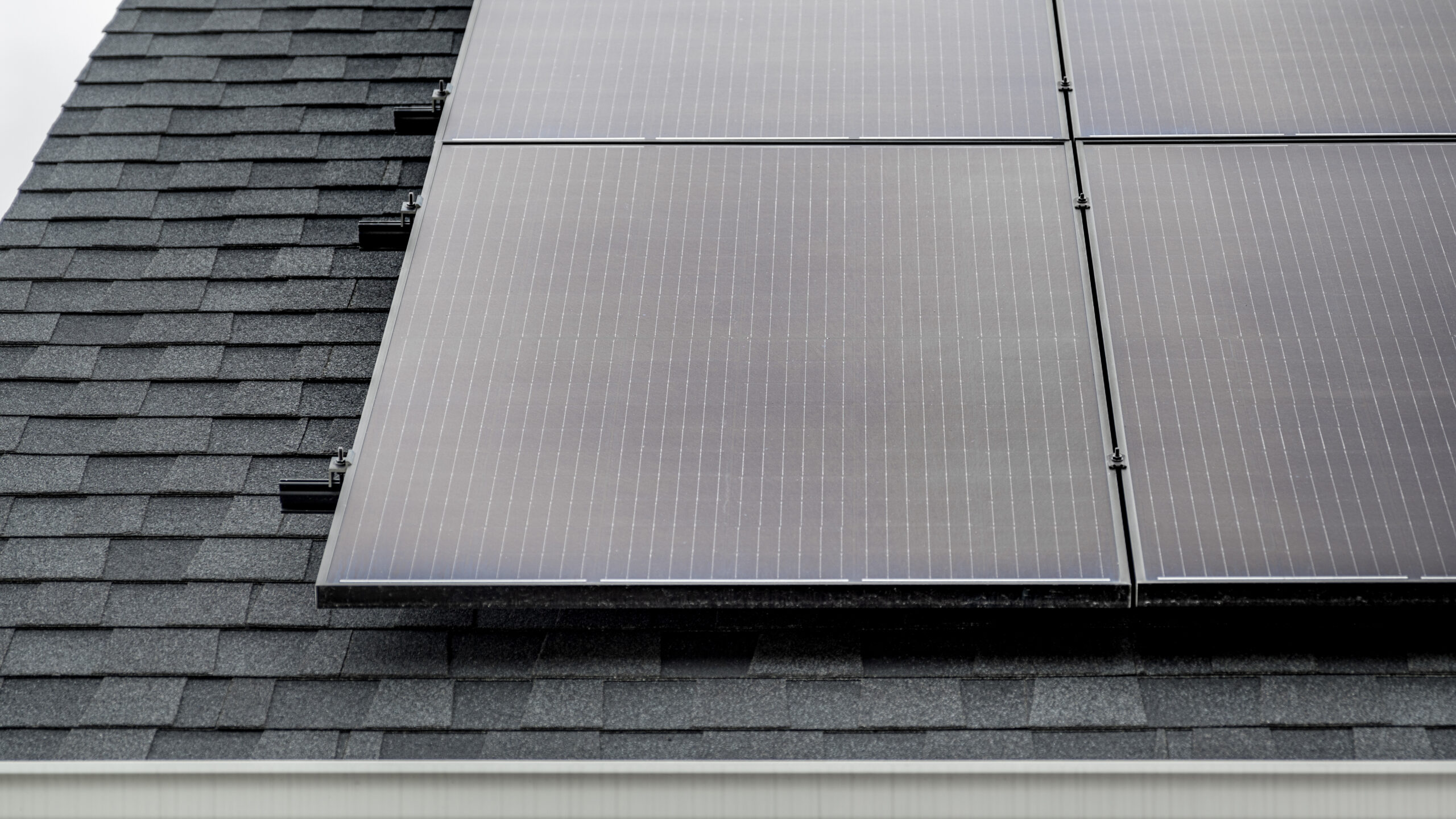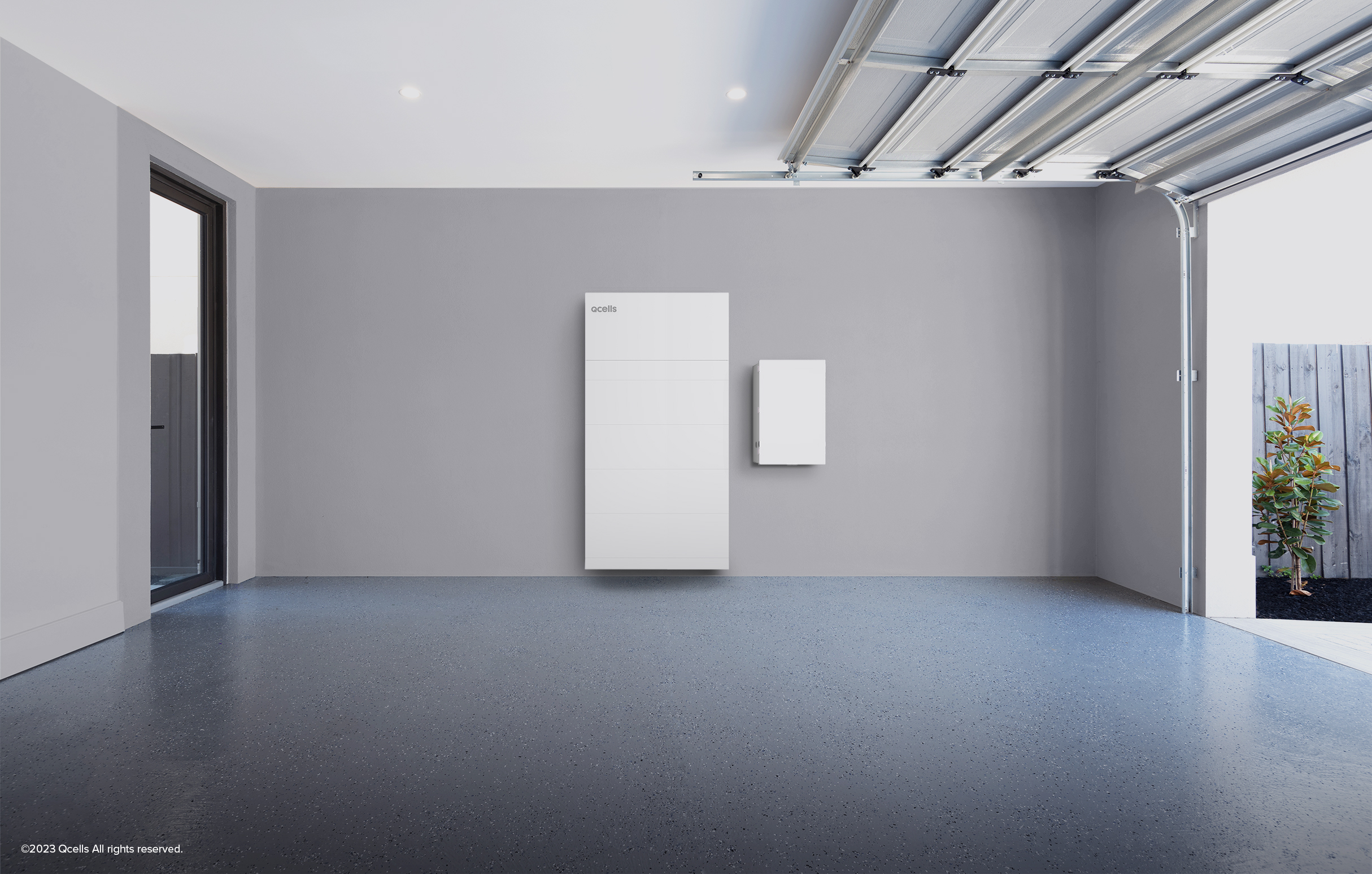As solar energy continues to become more accessible and cost-effective in the United States, many homeowners are considering installing a home solar system. Before making the switch, the first question many people consider is the average solar panel cost. Read on to get a clear breakdown of the average cost of solar panels and what factors can influence the overall price.
What Is the Average Cost of a Solar Panel System?
Residential solar panel systems cost, on average, $20,650[1], though prices can range from $17,400 to $23,900, depending on various factors. To break this price down further, solar panel costs per kWh can vary from $2.77 to $2.95, which makes them more cost-effective than ever before.
It’s important to note that these numbers are just averages, and your estimated costs may differ.
What Factors Affect Solar Panel Costs?
Although there is a national average for the price of solar panels, additional factors can still impact solar panel costs. Let’s look at some things that could influence what you pay for your home solar system.
Location
Where you live can play a significant role in the price you pay for your solar panels. If you live in an area with robust solar programs and an easily accessible infrastructure, adding solar panels to your home may be more cost-effective than in other areas that lack such incentives and favorable conditions. Furthermore, in areas with fewer peak sunlight hours, you may need more solar panels to generate the right energy to power your home — thus increasing costs.
Energy Needs
The amount of energy your household consumes also impacts the solar panel costs for an average home. A typical home in the United States can use up to 10,632 kWh of electricity in one year. So, if you consume a similar amount of electricity, you’ll need a solar panel system to generate that much energy. If you have a bigger home or higher energy consumption, your solar panel costs per square foot may be higher compared to other homeowners.
To determine your energy needs and the amount of solar panels you may require, you should contact a reputable solar installation company in your area. These professionals can help determine the right solutions for your home and build a personalized system that fits your family’s needs.
Type of Solar Panels
Another factor influencing solar panel costs is the type of panel you have installed. Monocrystalline photovoltaic (PV) panels are the most common — and preferred — type of solar panel. They are also the most efficient option, which means that they often cost more than panels with lower efficiencies.
At Qcells, we offer two exceptional monocrystalline PV solar panels: the Q.ANTUM DUO, a p-type panel run by PERC cell technology, and our latest offering, N-type Topcon PV panels based on Q.ANTUM NEO technology.
Q.ANTUM DUO
Qcells was the first solar company to commercialize Q.ANTUM, the most mature PERC (Passivated Emitter and Rear Cell) technology. We use our special nano coating, Power Reflector, on the back of the solar cell, capturing more light and increasing the efficiency of the solar panel. To create the Q.ANTUM DUO technology, we build up our original Q.ANTUM technology by using multi-busbars and wiring interconnection to deliver superior performance and sleek, beautiful aesthetics.
With this DUO technology, our solar panels feature two layers of light-absorbing materials that increase efficiency compared to other solar panel options.
Q.ANTUM NEO
N-type cell technology, Q.ANTUM NEO, has an advanced design, optimized cell structures, and high power output. The source of the highly efficient Q.ANTUM NEO solar cells comes from the NEO power transmitter. Panels with this technology have exceptional low-light performance, meaning they still have a high output on cloudy days or times of less direct sunlight, effectively increasing the duration of power generation. Additionally, solar panels that use this technology also have higher durability and reliability projections than other solar panel types.
Solar Company
In addition to the solar panels you chose, the company you select to install them can also influence overall solar panel costs. Some companies may charge more for their labor or have higher prices due to the nature of the job and where you live. That’s why it’s important to thoroughly research solar installation companies near you to ensure you’re getting the best products and services at a reasonable price. At Qcells, we have several preferred partners we can recommend, like Axia by Qcells, to ensure you work with a professional, experienced solar installer.
Size of Panels
Other cost considerations are solar panel size, system size, power output requirements, efficiency and technology, geographic location, sunlight availability, and available roof space. Larger panels are usually higher in power, so you would need fewer panels to generate the energy you need. Your family’s energy usage also correlates with your system’s size, as higher energy consumption may indicate that you need more panels to match your energy needs. If your roof doesn’t have enough ideal space for your required system size, you can work with your solar installation company to determine the best option for your home.
Another factor to consider regarding solar panel sizes is the amount of peak sunlight hours your home receives every day. If you get a large amount of direct sunlight every day, you may be able to install fewer panels on your home since they will be operating at a higher efficiency most of the time. However, if you receive less peak sunlight, your solar installation company can help you get the most efficient panels to convert the available sunlight into the usable energy you require.
Incentives
Solar panel incentives are programs offered by local, state, and federal governments to help offset the cost of installing a home solar system. These programs can range from solar panel tax credits to rebates, or grants, each with unique requirements and benefits.
One of the most significant solar panel incentives is the solar investment tax credit (ITC), also known as the federal solar tax credit. With this credit, it is possible to subtract 30% of your solar installation costs from your taxes for the year you switched to solar. Another popular solar incentive that is offered on a state or local level is net metering. This program allows homeowners to send any excess energy they’ve generated back to the local grid in exchange for credits toward their monthly utility bill.
It’s important to note that these incentives will vary depending on location, and not every program will be available where you live. Many of these programs are also time-sensitive, so switching to solar sooner is a good idea if you want to take advantage of available solar incentives.
Purchasing Options
When considering how to buy solar panels, there are a few different purchasing options to meet your needs.
- Cash — If you have the means, you can pay for your home solar system in cash.
- Solar loan — This option is similar to other loan processes, meaning you would apply for the loan, get approved, and repay the loan based on the outlined terms.
- Home improvement loan — This type of loan can be used for most home improvement projects, including solar installation. A home improvement loan is often a good option because you get the financing sooner and often at a lower interest rate than other loan options.
- Home equity line of credit (HELOC) — To use a HELOC, you would borrow against your home’s equity to get the funds to install a home solar system. With this option, you’ll get a lower fixed interest rate and could have a higher borrowing limit depending on how much equity you have.
- In-house financing — Some solar installation companies offer financing options through their company or a preferred lender. Many homeowners consider this option because it is generally easier to get a varying payment plan that fits their budget.
- Third-party ownership — With this purchasing option, your solar installation company will own the solar panels on your home and provide insurance and maintenance for the life of the ownership terms, usually 25 years. Third-party ownership is typically offered as two options: leases and power purchase agreements.
- Lease — Homeowners pay a fixed monthly rate to use the solar panels installed on their roofs over a specified time. Once the initial lease contract is over, you can purchase the panels at fair market value, sign a new lease, or have the panels removed and return to traditional electricity options.
Power purchase agreement (PPA) — With a PPA, the solar panels are installed on your roof, and the solar company owns and maintains them, just like with a lease. However, instead of paying to use the solar panels, you purchase the energy generated from the panels at a fixed price that is typically more cost-effective than grid electricity.
- Lease — Homeowners pay a fixed monthly rate to use the solar panels installed on their roofs over a specified time. Once the initial lease contract is over, you can purchase the panels at fair market value, sign a new lease, or have the panels removed and return to traditional electricity options.
Additional Solar Panel Costs to Consider
Aside from the initial price of your solar panels, there are other factors that contribute to the overall cost of switching to solar.
Installation
In addition to purchasing the solar panels and other system components, there are also installation costs you’ll need to consider. These costs cover the labor associated with installing your home solar system and are usually included in the total price of your system.
Cleaning
Typically, a good rainstorm or melting snow can rinse away any dirt that may accumulate on your solar panels. However, if there is a lot of dirt or debris on your panels, and they are located in a lower area that is easily accessible, you could gently clean them with a microfiber cloth and lukewarm water, then simply let them air dry.
Your solar panels don’t need to be cleaned often — usually only a couple of times a year (possibly more in regions with less rainfall). To avoid injuring yourself or causing issues with the panels, we recommend leaving any required cleaning to your solar installation company. Solar panel cleaning costs vary from company to company, so talk with your installer for an accurate rate.
Maintain and Repair
Solar panels require very little maintenance since they are built to be highly durable and run independently. However, it’s still a good idea to consider solar panel repair and maintenance when weighing the overall cost of a home solar system. Potential solar panel maintenance costs, on average, are around $180[2] a year. So, while this isn’t a significant expense and may not be needed every year, it’s still something to think about when looking at solar panel costs.
Most solar panel manufacturers offer a long-term warranty to cover any repairs costs during the warranty period. Qcells’ warranty is good for 25 years to ensure your solar panels are protected for many years to come.
Monitoring
When you switch to solar energy, you want to ensure you get the maximum output and efficiency from your system. That’s why it is recommended that you get a monitoring system for the solar panels on your home. At Qcells, our monitoring app, Q.OMMAND, gives you a comprehensive look at your home solar system with real-time updates on energy generation and consumption.
Do Solar Panels Save Money?
So, do solar panels help you save money? Yes! There are several ways that solar panels can help you save money over time.
Lower Utility Bills
Solar panels generate energy, meaning you can power your home with your own energy instead of relying on traditional grid electricity. Since you are relying less on the grid, your utility bills can decrease over time.
If your system produces more energy than your home can use in a day and you live in an area with a net metering program, the excess energy you generate can be sent back to the grid in exchange for credits on your electricity bill, which can further reduce overall costs and save you more money.
You can also add an Energy Storage System to your home solar system, which allows you to store any excess energy for future use instead of sending it back to the grid. This ensures you have access to all the power your solar panels generate and can move further away from grid use.
Increased Home Value
Adding a home solar system can potentially increase your home’s value by around 4.1%. Additionally, many prospective homebuyers consider solar a must-have feature on their home shopping list. This means you could sell your home for more money — and faster — than comparable properties in your area.
Tax Credits, Rebates, and Incentives
There are several federal, state, and local tax credits, rebates, and incentives that can help lower or offset the cost of solar panels and solar installation. As previously mentioned, one of the most popular federal programs is the solar investment tax credit (ITC), which allows you to claim a portion of your solar installation costs on your taxes for the year you installed solar on your home.
Price of Solar Panels Over Time
The first solar cells date back to the 1800s. As solar technology has advanced, the first solar panels that we recognize today hit the market in 1954 at a price beyond the means of the average homeowner at the time.
In the late 2000s, solar panels had an average cost of $8.50 per watt[3]. Today, solar panels are much more efficient and cost-effective than ever, with the average cost down to around $2.77 per watt. As solar technology continues to progress and become more widely accessible, prices may continue falling, ensuring solar remains a cost-effective option for years to come.
Contact Us
If you’re ready to install high-quality, efficient solar panels on your home, Qcells is here to help. You can contact our team with any questions, and we can put you in touch with one of our professional installation partners in your area.
Let us help you get started on your solar journey today!
[1] https://news.energysage.com/solar-panel-efficiency-cost-over-time/
[2] https://www.forbes.com/home-improvement/solar/solar-panel-maintenance-tips/#:~:text=Solar%20Panel%20Installer-,Solar%20Panel%20Maintenance%20Cost,and%20cleanings%20can%20cost%20%24150.





 USA & Canada
USA & Canada Korea
Korea Germany
Germany United Kingdom
United Kingdom France
France Italy
Italy Netherlands
Netherlands Greece
Greece Poland
Poland Portugal
Portugal Hungary
Hungary Spain
Spain Japan
Japan